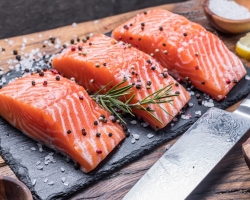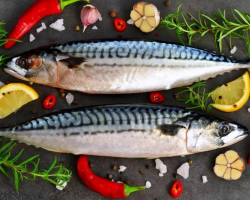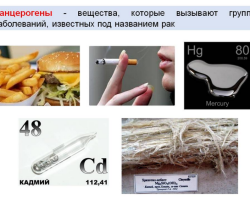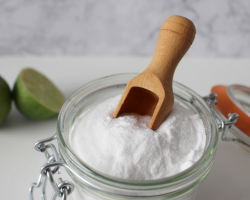The article lists the most popular varieties of persimmons, as well as possible benefits and harm from the fetus.
Content
- Hurma: varieties, names
- Hurma: chemical composition, vitamins and trace elements, iodine content, iron
- Hurma fresh, dried and sluggish, korolek, bull heart: beneficial and healing properties for the body of women and men
- Hurma: fasten or slabs, increases or lowers pressure, dilutes or thickens blood, causes allergies, gas formation?
- How much can you eat persimmons per day and what will happen if you eat a lot of persimmon? Can a stomach hurt from persimmon?
- How much sugar is in a persimmon, what is its glycemic index, calorie content per 100 grams
- Hurma: Contraindications. What diseases can not eat persimmon?
- Video: "The best varieties of persimmon"
Hurma: varieties, names
Surprisingly, such a sweet and beloved fruit as a persimmon, a sign to a person for more than 2000 years. Hurma is distinguished by an unusual taste with many sweet, sour and tart shades.
Hurma is a berry rich in vitamins and having a very small calorie content. It should be present in the diet of each person, especially in winter, when vitamin deficiency is a very common phenomenon.
Hurmam is eaten raw, jams and jams, jelly and marmalade, compote and drink, even wine are prepared from it. Fresh fruits can be dried and dried. It is interesting that even the bones of the persimmon can be used to brew a special “coffee” drink, and the tree on which the persimmon ripens is considered expensive and is called “black” (used for the manufacture of elite furniture).
The persimmon has many varieties and they differ in the nature of pollination. Berries can be light, bright or dark, have or not to have a bone, have a sweet or astringent taste.
Varieties:
- Permanent is ordinary - This variety can be safely called "the worst", because the berries have a binder taste, which is why they are very difficult. Also, this persimmon has a dense skin and pulp of a bright orange color.
- Korolek -the most popular and sweet variety of berries, which is very common in the open spaces of the CIS. It differs in low cost and a complete lack of astringency. Korolek has a saturated orange color and delicate, juicy pulp.
- Chocolate Korolek -soft and juicy fruits with a dense skin and delicate brown (“chocolate”) pulp inside. It is interesting that the darker the korolka pulp, the sweeter and more saturated the taste will be. There is no astringency in the "chocolate" Korolka at all.
- Honey Korolek -this is an unnecessary “chocolate” Korolek, which has a sweet, but slightly “snotty” pulp.
- Sharon -this is an unusual persimmon variety crossed with an apple. That is why the berry is more juicy and in the context really resembles an apple. The aroma of the Sharon is very delicate and sweet, the taste is sweet and it does not have a drop of troops.
- Hiakum -these fruits are very unusual, because they have an oblong shape. The color of the berries can vary and vary from honey to brown. The taste of such a persimmon is saturated and very sweet, there is no astringency at all. Hiakum is good in that due to dense pulp and skin, it is easy to transport.
- Chocolate - The oblong berry with a dark, brown pulp of pulp. The taste of the chocolate is sweet, but sugary. It is interesting that the more bones in such a persimmon, the tastier it will be.
- Hurma mandarin- The fetus got its name only because it is easy to compare it with real tangerines. She has a delicate and honey taste, but it is not rarely sugary (too sweet). After ripening, the pulp of this persimmon becomes jelly -like.
- Bull heart- This fruit differs in size, since it is large and there are absolutely no bones in it. The name of the persimmon is owe to tomatoes who are also called and have a similar shape. The pulp of this berry is always juicy and bright orange, there are not many cunning and viscosity in this persimmon.
- Russian woman- A very tasty berry with pulp, resembling a marmalade in consistency. It is interesting that the ripe fruit has a nut tint of taste.
- Chinese persimmon - The berry differs in that it has a very unusual shape - an acorn. The fruits are very soft and sweet, they have a dense peel. The pulp of this variety lacks sweets, it always knits her mouth.
- Hovella Hero- This is one of the best "hybrid" varieties of berries. It differs in that the persimmon is quite large, has a rich pulp with a sweet taste and dark burgundy pulp.
- Persimon- One of the "new" varieties of persimmon, which is characterized by relatively dense pulp, but a pleasant sweet taste.

Hurma: chemical composition, vitamins and trace elements, iodine content, iron
Hurma is a real storehouse of useful substances. She is incredibly rich in vitamins and minerals.
Compound:
| The persimmon contains: | What is useful for the human body: |
| Vitamin A | It is very useful in order to maintain the beauty and strength of hair, nails and skin. It is also necessary for vision and bones |
| Vitamins B. | Necessary substances for good metabolism in the body |
| Potassium | Strengthens the nervous and cardiovascular system |
| Calcium | Strengthens the bones |
| Magnesium | Necessary for the work of the heart and brain, strengthens the muscles |
| Phosphorus | It is needed not only for bones and teeth, helps maintain muscle and mental activity. |
| Iron | Increases hemoglobin |
| Sodium | Regulates the water-salt metabolism of the body, supports the work of the kidneys |
| Iodine | Improves thyroid function |
| Cellulose | Improves intestinal function |
| Amino acids | Extend the youth of the body and strengthen its health |
| Tannins | Soothe the gastrointestinal mucosa and relieve its inflammation |

Hurma fresh, dried and sluggish, korolek, bull heart: beneficial and healing properties for the body of women and men
Hurmma is best to eat fresh. She matures in the middle of autumn (just when a person lacks vitamins. At the same time, you can pamper yourself with dried or even dried persimmon. The nutritional value of this berry is incredibly important and valuable for humans. The benefits of the persimmon do not depend on which It is the variety of the fetus that you prefer.
The benefits of persimmon:
- This sweet and pleasant taste of the fetus effectively fights stress, taking a bad mood, depression and overstrain.
- Hurma will become your effective remedy for autumn vitamin deficiency and lack of useful substances in the body.
- The berry is rich in “useful calories”, which splitting, give an important charge of energy for the brain, increasing its activity.
- The antioxidants contained in the persimmon will extend the youth of your body will rejuvenate and slow down for a long time.
- The fruits have a good diuretic property, which means that you will reliably get rid of swelling and “expel” all the water from the body.
- There are a lot of vitamins B in the persimmon, which means that you normalize the metabolism and restore metabolism.
- This fruit can be deserved to be considered a dietary product and not in excessive quantities to eat, even if you consider calories.
- The astringent taste of many varieties of persimmon (in some of it is not enough, in others there are many of it) is due to the presence of pectins. These substances are very useful, both for prevention and the treatment of all diseases of the gastrointestinal tract.
- The rich mineral and vitamin composition of the persimmon favorably affects the liver.
- Some varieties of persimmons have a laxative property, while others strongly fasten.
- Monosaccharides in this berry are very useful for strengthening the heart muscle, and are also able to strengthen blood vessels.
- The very rich iron content in the persimmon saturates blood and thus is an effective prevention of anemia.
- There is a significant share of iodine in the persimmon, and it is not only useful for the thyroid, but also for the work of immunity and increasing brain activity.
- If you want to avoid varicose veins - frequent use of this fetus will help you.
- Hurmma will also help strengthen your strength and quickly recover after a cold.
- The tannins are actively fighting cancer cells, and there are a lot of these substances in the persimmon.
- Carotine and vitamin C, as well as vitamin A will significantly increase and strengthen vision.

Hurma: fasten or slabs, increases or lowers pressure, dilutes or thickens blood, causes allergies, gas formation?
It is interesting that the persimmon contains pectin several times more than in apples, for example, or in oranges. Pectin is, speaking with a simple scum, a “orderly” for the intestine. It eliminates all the stained feces and improves its peristalsis (active work).
However, in some cases, this fruit can cause a reverse fixing property. This happens only in those people whose intestinal microflora was broken. In such a situation, the intake of persimmon should be urgently stopped and completely “remove” it from your diet.
Of course, persimmon is very useful for a person, but still it must be eaten carefully to avoid negative consequences and always focus on their health. For example, there are so many sugar and carbohydrates in the fruits that they can even cause blood thickening. In addition, the persimmon is diuretic, which means that you use it too much, you risk achieving dehydration (and blood thief also).
Another significant property of the persimmon is to lower the pressure, which is very relevant for hypertension. In addition to the fact that the fetus drives excess water from the body, it also strengthens the cardiovascular system.
When and no matter how you use persimmon, try to eat it in limited quantities (no more than one fruit per reception). The fact is that this product is allergic and out of ignorance you can easily achieve such unpleasant consequences as:
- Bad feeling
- Nausea and vomiting
- Broken stool and diarrhea
- Increased flatulence
- Incorrect heartbeat
- Hypotension

How much can you eat persimmons per day and what will happen if you eat a lot of persimmon? Can a stomach hurt from persimmon?
The daily persimmon rate for humans per day is 1 fruit. This is the desired quantity, but you can also exceed it if you do not have contraindications for consumption (then you can eat 1 fruit of persimmon in one meal). If you eat this fruit in excessive quantities, you can disrupt the digestive tract, which will lead to diarrhea, gas formation, and hence the pain in the stomach.
How much sugar is in a persimmon, what is its glycemic index, calorie content per 100 grams
Hurma is not a very high -calorie product and therefore it is often included in the diet diet. Per 100 gr. Gurmas accounted for only about 60 kcal. In more sweet hybrid varieties, the number of calories can increase by 20-30%.
There is not a lot of protein in the persimmon, but it is (only 0.5-0.6 g) and very few fats (approximately 0.2-0.3 g). Along with this, carbohydrates in the fruits are enough (about 15 g). Gurms - 45 mg.

Hurma: Contraindications. What diseases can not eat persimmon?
Like any other food product, persimmon can have clear and even categorical contraindications for its eating.
Contraindications:
- In no case can a persimmon can be eaten in excessive quantities! If she is tart, she has a lot of astringent substance that attaches a chair. This can bring this to strong and complex constipation, as well as intestinal obstruction.
- Diabetics also cannot eat many persimmons, because it has so many sugar and carbohydrates.
- Very carefully and in minimal quantities this fruit should be eaten by those who suffer from inflammatory pancreatic processes.
- No need to eat too “astringent” persimmons, because such a fruit simply did not completely complement and he cannot bring benefits.
- You can’t eat small persimmon, not reaching the age of 3 years, because the “young” body simply cannot learn this product.
- The best age for the “feeding” of persimmon is teenage (starting from 10 years).
- Eating persimmons, try not to seize or drink it with dairy and sweet and milk products (this will provoke flatulence).
- With severe sensitivity and predisposition to allergies, limit the use of persimmon to avoid gastrointestinal disorders and other allergic symptoms (rash, redness, itching, shortness of breath, inflammation of the mucosa).







